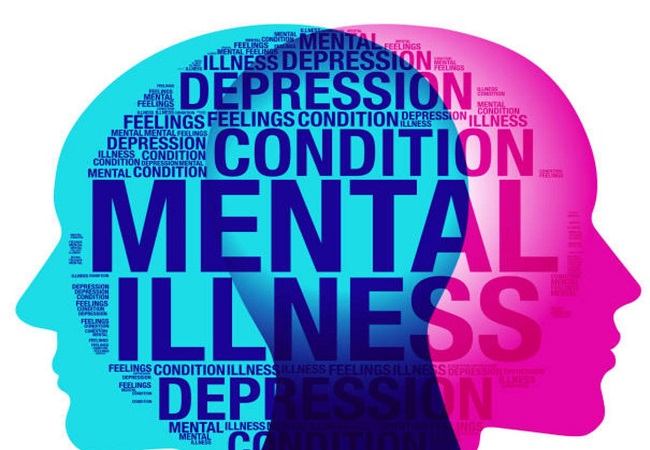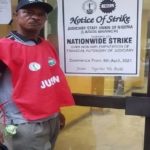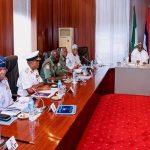In this report by SADE OGUNTOLA, experts say that people with mental health conditions and psychosocial disabilities experience several challenges that need to be addressed through a bottom-up approach that takes into consideration their experiences and opinions. With the necessary intervention, they can recover and live happy and productive lives.
Despite a mental health issue, Ms Atinuke Ola (not real name), a 38-year-old civil servant says having a mental health challenge can be really tough, but it’s certainly not the end of the world.
“When I was diagnosed at the age of 13 years with bipolar affective disorder, my mother was amazingly supportive. She was not ashamed of my predicament but sought help and ensured I was seen by mental health professionals. If she had not been so proactive and ensuring I received treatment from the very beginning, maybe I would have ended up like others roaming the street,” she said.
Ms Ola, with the support of her friends, mother and siblings is living proof that a diagnosis of mental illness – bipolar disorder in her own case, for over 20 years now, should not hold you down from a good education and a successful life and career. Bipolar disorder falls under the category of mood disorders and is characterized by alternating episodes of depression and manic phases. A depressive episode is characterized by extreme feelings of sadness, tiredness, feelings of hopelessness and other features of depression at one point in time; and at other times, they may switch to a manic phase where they may experience grandiose delusions, excessive energy and reduced need for sleep.
According to Ms Ola, persistent myths and misconceptions in society tend to portray such disorders as resulting from sexual immorality, a spiritual problem or curse, or an illness that only affects a certain set of people.
She added: “Psychosis can be well managed if diagnosed early enough and there is access to basic health care. I was diagnosed at age 13 with bipolar affective disorder and my own experience corroborates the fact that a patient can get well with treatment.”
Another lady Miss Bintu Akinsola (not real name) also spoke about her lived experience with a psychotic illness over several years. When it first started, she would hear voices speaking with her that others could not hear. Thus, she felt very anxious and was unsure what was happening to her. But she found relief with treatment and she has been fine for several years now. She is gainfully employed and her family and everyone else around her is very happy with her progress. Her illness as a teenager is now more like a distant memory.
Ms Atinuke Ola and Bintu Akinsola are members of the Support, Comprehensive Care and Empowerment of People with Psychosocial Disabilities in Sub Saharan Africa (SUCCEED), African Research Consortia Nigeria Team, recently launched in Ibadan, Nigeria. They shared their personal lived experiences at the launching and unveiling of SUCCEED in Nigeria. The SUCCEED Project is an intervention that aims to support the provision of comprehensive care and empowerment for people with psychosocial disabilities in sub-Saharan Africa.
The six-year project, in partnership with the London School of Hygiene and Tropical Medicine, UK, will also be taking place in other African Countries of Zimbabwe, Malawi and Sierra Leone. But a unique feature of the SUCCEED Africa Project is that every step of the project will be performed in partnership with persons such as Ms Ola and Ms Akinsola who have had lived experience of mental illness. Together and working collaboratively, they hope to produce and evaluate community-based interventions for people with psychosis in Africa.
Professor Olayinka Omigbodun, a consultant psychiatrist and the principal investigator for the SUCCEED African Research Consortia in Nigeria, explained that psychosis is one of the most disabling mental health conditions and it affects one per cent of Nigeria’s population, which equates to about 2 million Nigerians.
Omigbodun, also the provost, College of Medicine, University of Ibadan, said, unfortunately, over the years, psychosis has been neglected and there is poor access to quality treatment – despite its troubling social consequences. Thus, there is a pressing need for a bottom-up approach to investigate what works for people with psychosis in our communities in Nigeria and other African countries, with a view to addressing the identified health services need.
Dr Tolulope Bella-Awusah, the acting director, Center for Child and Adolescent Mental Health, University of Ibadan said psychosis is a brain disorder that may occur as a result of a psychiatric illness such as schizophrenia and bipolar disorder.
She further listed the possible symptoms of psychosis as including delusions, hallucinations, talking incoherently, agitation and loss of touch with reality; although each person’s experience of psychosis may be unique and different. Some individuals may have all these symptoms, while others may have a few of the symptoms.
Hallucinations are sensations that appear to be real but are created within the mind. Examples include seeing things that are not there, hearing voices or other sounds, experiencing body sensations like crawling feelings on the skin, or smelling odours that are not existent.
While about 75 per cent of those with psychosis would have their first episode between the ages of 15 and 40, she said that it is also a misconception that psychosis is for a special group of people or those with certain characteristics.
“Psychosis can happen to anyone. If you have a brain, you’re not immune to mental illness, including psychosis,” she declared.
Dr Bella-Awusah stated that it is a misconception that most people with psychosis are unable to hold down a job, form deep friendships, or have meaningful intimate or family relationships given that there are effective treatments to manage the condition.
“The people with mental illness on the streets have been unfortunate not to get good treatment. If you bring them to the hospital and they get proper treatment, they will do very well, and be able to go back home and live their normal lives,” she concluded.
A community health physician, Dr Olubukola Omobowale opined that aside from the treatment of recent onset (acute) mental illness in the hospital, there are other options of care for persons with mental illness within the community.
According to her, a community-based rehabilitation service will also offer them education, access to health care, social support, enhanced livelihood and empowerment facilities within their home or community environment. These options, she said, are not so expensive and it gives affected persons and their families, who may be struggling with psychosocial disabilities, the opportunity to be actively involved in their own treatment and future plans.
Dr Jibril Abdulmalik, a consultant psychiatrist, and chief executive officer, ASIDO foundation, an NGO that promotes mental health advocacy, said there is a huge ocean of ignorance, shame and stigma that affect people living with mental health challenges in Africa.
“The psychosocial disability they face, are sometimes more burdensome than the actual symptoms they experience while ill. It is this realization that led to the launch of the #unashamed campaign last year by the ASIDO foundation. It aims to promote open conversations and eliminate shame and stigma around mental illness in the new decade of the 2020s” he said. In his goodwill message at the event, he reiterated that the Asido Foundation is proud to be associated and to support the actualization of the SUCCEED Africa Project.
The President, Association for Child and Adolescent Psychiatry and Applied Professionals in Nigeria (ACAPAN), Dr Yewande Oshodi, said the project is for persons with psychosocial disabilities, their families, as well as the professionals that care for them. This is especially pertinent now, more than ever before, that issues of mental health are increasingly taking the centre stage in Nigeria.
According to her, “this is novel, and we look forward to a world standard research approach that will impact positively on persons living with psychosocial disabilities and the processes of care generally.”
Dr Haleem Abdulrahman, a co-investigator on the Project, said the programme will build capacity for co-production between researchers, providers, people with psychosis and their families. They will all be working together to co-produce new tools, including outcome measures, for improved research on psychosis and synthesize evidence on “What Works” for psychosis in sub-Saharan Africa and for psychosocial disabilities more broadly in low- and middle-income countries.
The SUCCEED Africa Project is also expected to build on this evidence to co-produce interventions for people with psychosis in community settings; use tools it developed to evaluate the implementation and effectiveness of these interventions and increase uptake of evidence-based guidelines based on the research.
It certainly looks like promising times lie ahead for persons with mental disorders, including psychosis on the African continent. We can only hope that the SUCCEED Africa Project succeeds, for the collective good of everyone.
YOU SHOULD NOT MISS THESE HEADLINES FROM NIGERIAN TRIBUNE
Former President of Nigeria, Dr Goodluck Ebele Jonathan, has opined that Nigeria is where it is today because of leadership of family and friends, acquaintances rather than ability and capability to deliver.
I Slept With My 12-Yr-Old Daughter Because My Wife Is No Longer Attractive To Me, Man Tells Police
A 49-year-old man, Ubong Akpan, is now in net of the Ogun State Police Command for allegedly having carnal knowledge of his 12-year-old daughter.
Cryptocurrency: Understanding The Craze, Threat
ON Friday, February 6, the Central Bank of Nigeria (CBN) rocked the boat with a circular that inadvertently highlighted how popular cryptocurrency transactions have become among Nigerians in recent years, judging by…
After Two Years, Daddy Freeze Apologises To Bishop Oyedepo
Daddy Freeze whose real name is Ifedayo Olarinde has apologised to Bishop Oyedepo who is the presiding bishop and founder of Living Faith Church aka Winners Chapel…






